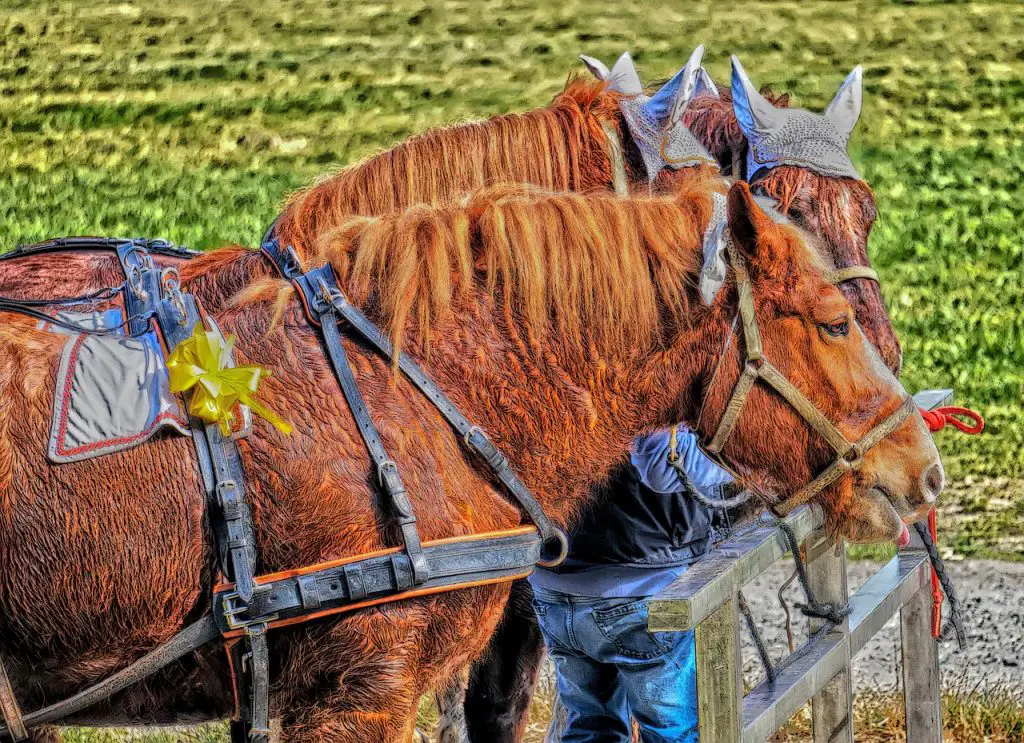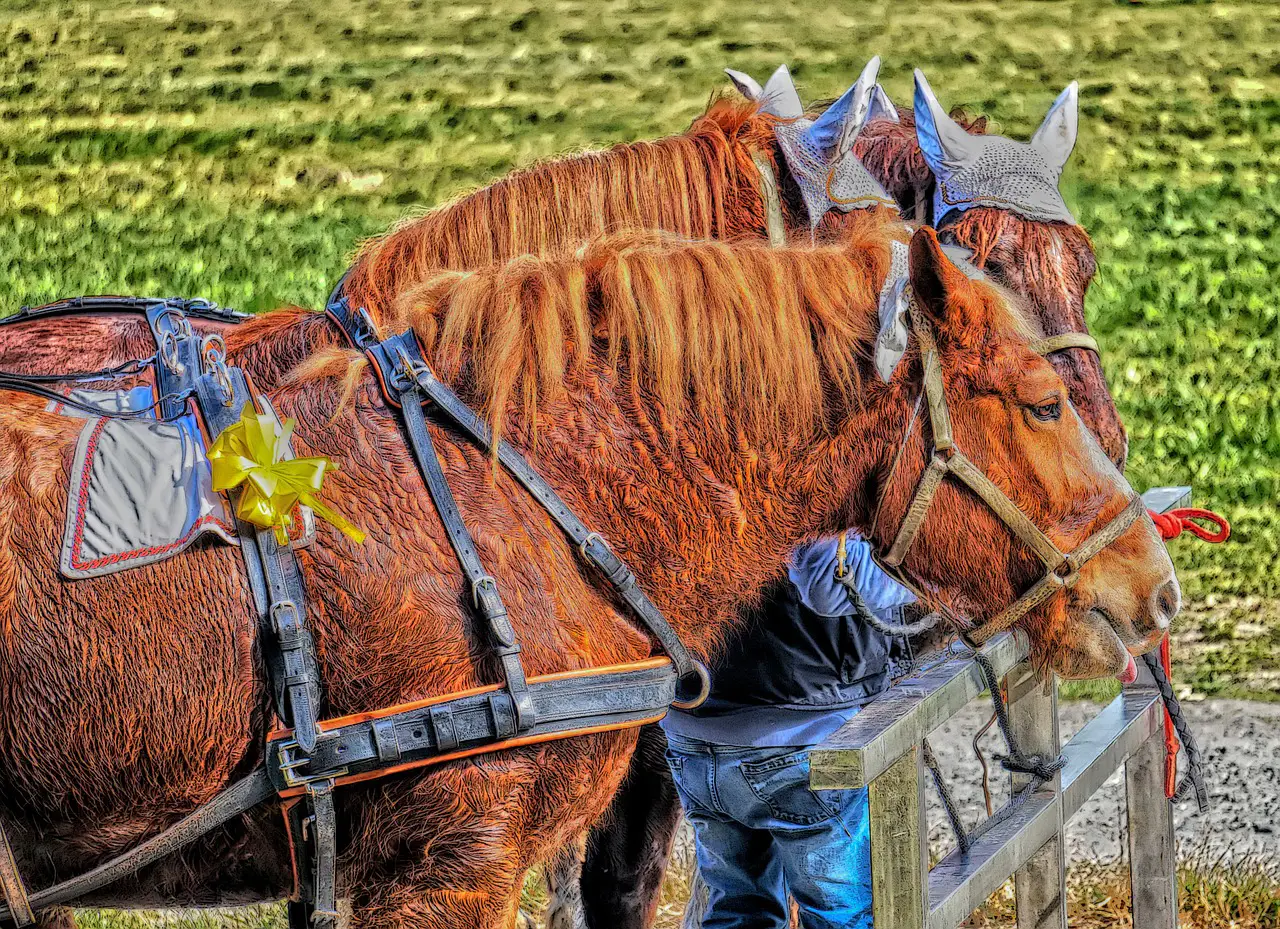Last Updated on February 23, 2022 by Allison Price
These are the three main mechanisms that horses use to keep cool.
Horses are cooled by perspiration through evaporation. Water is transformed from a liquid into a gas and absorbs energy from the surrounding. This energy comes in the form heat from the skin and air above. (Interestingly, horses and primates are the only ones that cool themselves by sweating.
Horses produce approximately one gallon of sweat per 15 minutes when they are working in warm conditions. The areas where tack is covered first, then the sweat spreads to the chest and neck, as well as between the hind legs. It’s normal for horses to sweat after a workout. However, horses who sweat even while standing still might need help staying cool. Horses who are extremely hot may sweat on their head, flanks, and top of their rump. This is a sign that they may be suffering from heat stress.
Anhidrosis is a condition in which a horse doesn’t sweat as much or not at all as his fellow horses in the same environment. Even in hot weather, this condition can increase the risk of heat stroke and heat stress. Anhidrosis may be caused by prolonged stimulation of sweat glands under hot and humid conditions.

Anhidrotic horses need a lot of help to keep cool. This means that the horse must be kept cool in hot conditions and should be kept indoors or near fans. Although nutritional supplements may be helpful, some owners and veterinarians suggest that the best solution is to move the horse to cooler regions. Many horses suffering from anhidrosis can function well in moderate climates. They may even start to sweat again after several years.
* Horses sweat electrolytes. These are minerals that are essential for the body’s electrochemical processes. The movement of fluid between cells, absorption of nutrients, and regulation of fluid balance are all key functions of electrolytes.
Horses can replenish their electrolytes through regular food, such as commercial feeds and forages. An electrolyte supplement may be helpful for horses that have been sweating for a long time. The cause of sweat is irrelevant. A horse that sweats on local trails will lose just as much electrolytes than one who sweats while running barrels.
Oral pastes and powders are available to add electrolytes to water or top-dress grain. No matter which form you choose to use, be sure to follow the manufacturer’s instructions and ensure that fresh water is available for your horse following administration.


